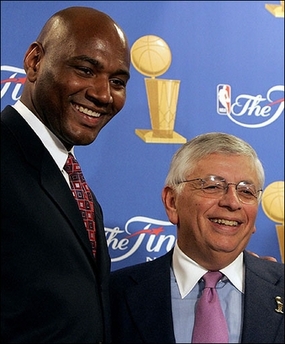The new coach of the Detroit Pistons couldn’t score 20 points as a player unless you gave him a week to do it.
I like him already.
Those who can’t do, teach – and that’s especially true in professional sports, where it seems that a prerequisite to being a great coach/manager is to NOT have been a great player.
Or, to reverse fields to prove the theorem, some of the greatest players in sports who’ve tried their hands at leading teams on the sidelines or in the dugout have been some of the most wretched generals you’ll ever see.
Take Teddy Williams, Hall of Fame hitter – some say the best ever to swing a bat. Eccentric Washington Senators owner Bob Short hired Teddy Ballgame to manage his ball club for the 1969 season. Williams had never coached before, let alone managed. But the moribund Senators needed something, anything, to breathe life into their franchise. Somehow, Short managed to lure – no pun intended – Williams from his dream life as a retired ballplayer/turned fisherman and into the Senators’ dugout.
The experiment looked like a stroke of genius, when Williams was named Manager of the Year and the Senators turned things around and had a winning season. But the success didn’t last, and before long, Williams’s rough-hewn personality was rubbing just about everyone the wrong way, especially the pitchers, who he detested and had no clue how to handle. His teams regressed yearly, until he went back to fishing after the 1972 season.

Williams (right) fizzled after a fast start as manager
The list goes on. Isiah Thomas. Bart Starr. Magic Johnson. Maury Wills. Oh, for an entire Sunday I could throw examples at you – superstar players who just couldn’t transfer their glory days as a player into any sort of success as a coach. Have there been exceptions? Yes. But they are best described with that depressing combination of the words “few” and “far between.”
Michael Curry was hired by the Pistons last week, just days after Flip Saunders was given the ziggy by GM Joe Dumars. He’s a recently-retired player, and was never a star – not even close. His claim to fame was playing tough defense and surviving ten-day contracts and being a cerebral player who was the president of the NBA Players Association.
Perfect coaching material.
Let’s take a look around.
Phil Jackson, with almost enough championship rings as a coach to fill the fingers on both his hands, is the Grand Master of cerebral. He’s a former hippie, playing for the Knicks in the late-1960s and early-1970s as a rarely-used backup forward and center, more likely to read up on Kant and Freud than the Celtics or the Lakers. Yet he parlayed a nondescript playing career into a Hall of Fame shoo-in as a coach.
Scotty Bowman, who I don’t even know where he came from. I DO know that he wasn’t an NHL player; not even close. He might have come out of the womb coaching, for all I know. You can make a case – and I have – that he’s the greatest coach of any sport, in any era, for any amount of money.
Sparky Anderson, who spent one mediocre season as the second baseman for the Philadelphia Phillies before turning to teaching because he couldn’t do. He piddled around in the minor leagues before becoming a 36-year-old manager for the Cincinnati Reds, though Sparky never looked a day younger than 45 in his life. His likeness is etched onto a plaque in
Vince Lombardi, who was a decent enough college lineman for
Red Auerbach, who chomped on cigars almost as vigorously as he chomped on winning in coaching the Boston Celtics through their dynasty years of the 1950s and 1960s. Red was no hoops star as a player, yet he made so many of them Hall of Famers as a coach.
There’s more. Bill Parcells and Bill Walsh and Chuck Noll in football. Glen Sather in hockey. Tony LaRussa and Connie Mack in baseball. None made any significant impact on their respective sports while part of the rank-and-file, but all are held as standard bearers when judging the merits of others with chalkboards and whistles.

Curry's administrative side is far more impressive than his playing history
I remember also Charlie Lau.
Lau was the preeminent batting coach of his day – and we’re talking the 1970s and ‘80s – having taught the science of hitting to the likes of George Brett, Hal McRae, and others with the Kansas City Royals, when KC was known for good baseball. Hitters swore by Lau’s techniques, supported by new-fangled methods such as videotape and computer programs. He was a hitting “guru,” that overused word.
But Charlie Lau couldn’t hit a lick as a player. His exploits as a big league hitter wouldn’t have filled up a 3 x 5 card. Those who can’t do...
The Pistons haven’t tried this route in a long time – hiring the recently-retired player who’s devoid of any significant coaching experience, as they’re doing with Michael Curry. The high-profile, coaching veteran route hasn’t worked the last three seasons – an eternity in pro sports.
In fact, the last time the Pistons did this, giving the coaching job to one of their former players who wasn’t far removed from donning a tank top and shorts himself, the year was 1972.
After his first full season on the job, Ray Scott won the NBA Coach of the Year Award. Ray could play, though. He was one of those exceptions.
No comments:
Post a Comment